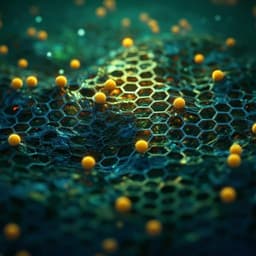
Chemistry
Electro-reduction of carbon dioxide at low over-potential at a metal-organic framework decorated cathode
X. Kang, L. Li, et al.
Discover a groundbreaking approach to the electrochemical reduction of carbon dioxide using a unique copper-electrode decorated with a metal-organic framework. This innovative research, conducted by Xinchen Kang and colleagues at the University of Manchester and the Chinese Academy of Sciences, reveals significant advancements in converting CO₂ to formic acid efficiently and with high Faradaic efficiency.
Related Publications
Explore these studies to deepen your understanding of the subject.







